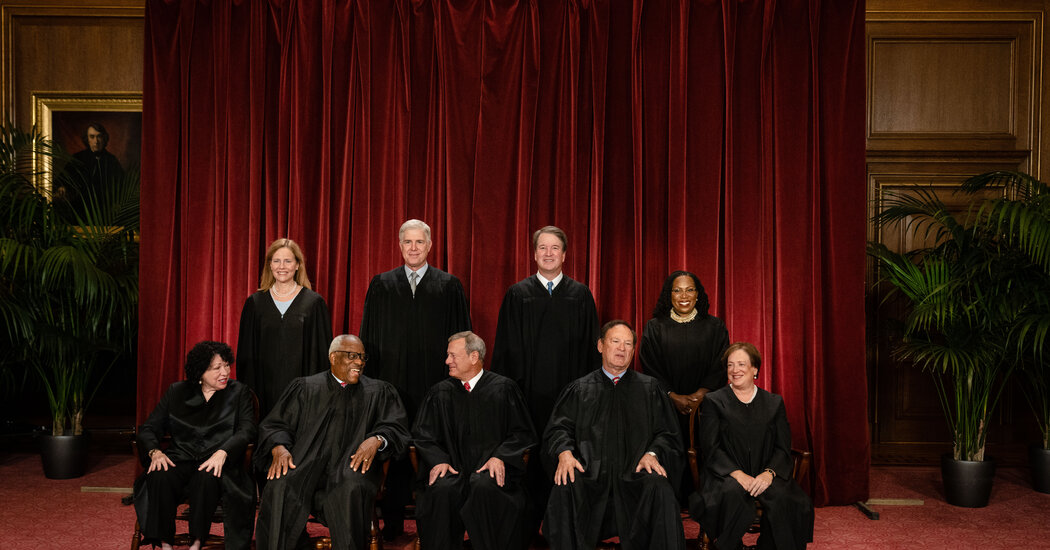The Supreme Court’s three Democratic appointees railed in dissent against the conservative majority’s ruling that former President Donald J. Trump has some immunity for his official actions, declaring that their colleagues had made the president into “a king above the law.”
Writing that the majority was “deeply wrong,” Justice Sonia Sotomayor added that beyond its consequences for the bid to prosecute Mr. Trump for his attempt to subvert the outcome of the 2020 election, it would have “stark” long-term consequences for the future of American democracy.
“The court effectively creates a law-free zone around the president, upsetting the status quo that has existed since the founding,” she wrote, in an opinion joined by the other two Democratic appointees, Justices Elena Kagan and Ketanji Brown Jackson.
Insulating the president of the United States — the most powerful person in the country and possibly the world, she noted — from criminal prosecution when he uses his official powers will allow him to freely use his official power to violate the law, exploit the trappings of his office for personal gain, or other “evil ends.”
“Orders the Navy’s Seal Team 6 to assassinate a political rival? Immune. Organizes a military coup to hold onto power? Immune. Takes a bribe in exchange for a pardon? Immune. Immune, immune, immune,” she wrote, adding: “Even if these nightmare scenarios never play out, and I pray they never do, the damage has been done. The relationship between the president and the people he serves has shifted irrevocably.”
Justice Sotomayor also wrote that how the majority had applied the new standard of immunity to official acts to Mr. Trump’s case specifically was “perhaps even more troubling.” Its analysis, she added, operated as a “one-way ratchet” — helping the defense but offering no help to the prosecution.
For example, she wrote, the majority declared that all of Mr. Trump’s actions involving Vice President Mike Pence and the Justice Department counted as official conduct but did not designate any actions in the indictment as falling into the non-“core” category of official conduct that it said could be prosecuted. Nor did it designate as clearly private actions any of several things that Mr. Trump’s team had conceded looked unofficial, like Mr. Trump’s interactions with a personal lawyer.
Justice Sotomayor railed in particular that the majority had declined to rule out immunity for Mr. Trump’s role in organizing fake slates of electors, pressuring states to subvert the legitimate election results, and exploiting the violence of the Jan. 6 riot to influence the certification proceedings.
“It is not conceivable that a prosecution for these alleged efforts to overturn a presidential election, whether labeled official or unofficial under the majority’s test,” would pose any danger of intrusion on the authority and functions of the executive branch, she wrote, adding that “the majority could have said as much,” but did not.
Sometimes justices conclude their dissents with a softening and polite qualifier, writing “Respectfully, I dissent.” Justice Sotomayor instead concluded this one harshly: “With fear for our democracy, I dissent.”
